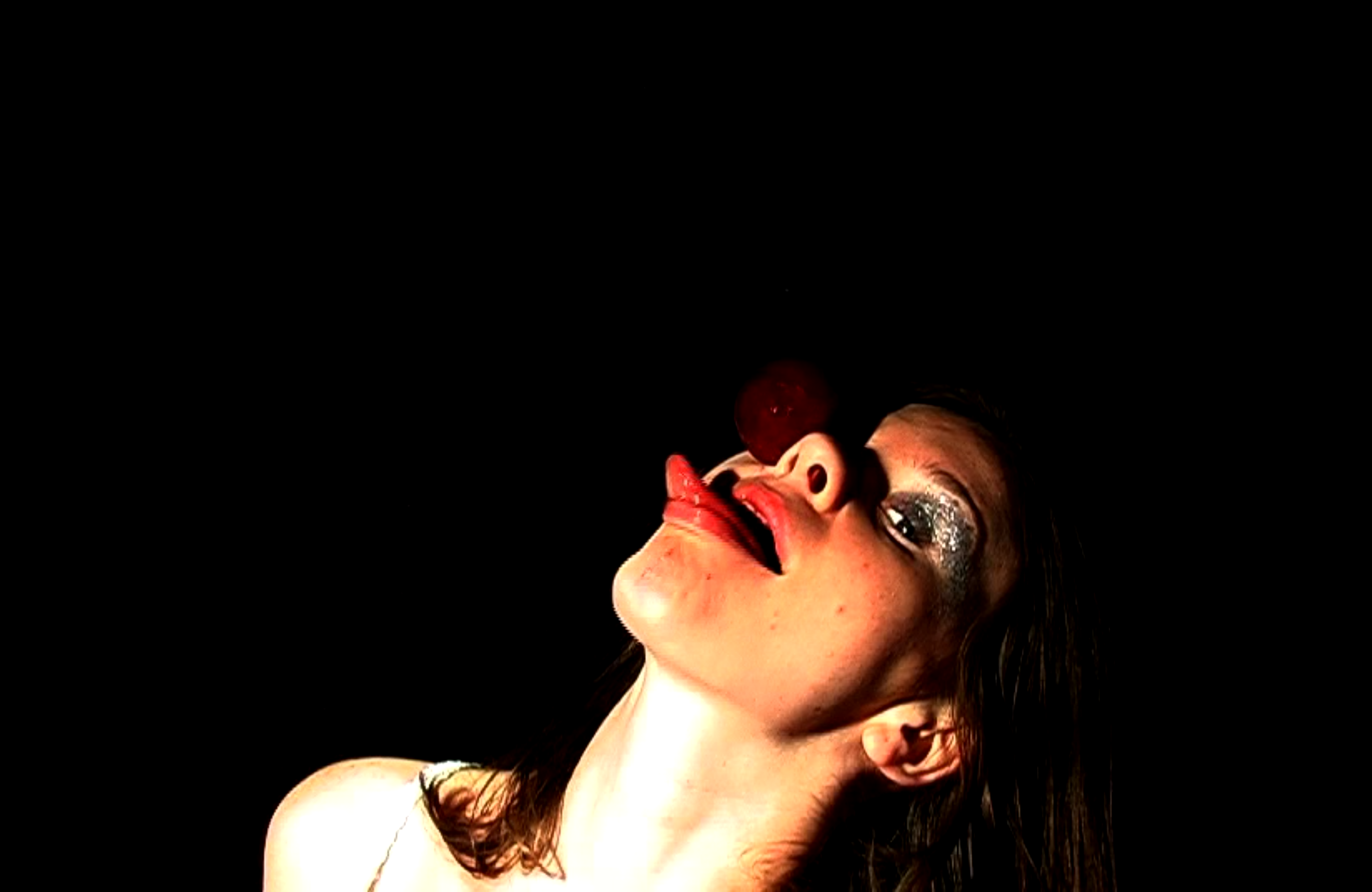

free association 2007
l’eau de femme: free association at LOOSENoise rumbles out in low base registers making the connection to free association (think jazz improv), a little obscure. (But it’s there.) Especially as the immediate impact of this four-piece installation is visual: a stack of video monitors, large boxes and a broom next to carefully moulded piles of dirt. But with a stealthy subtlety thesonic components come to dominate in unexpected ways: sound elements bleed through and over each other, penetrating headsets, competing and complementing like jazz improv through the random experience of the individual parts.
Of the four, Monica Brooks’ most compellingly advertises itself as a sound work. Emanating from a mysterious set of stacked boxes, each element of noise is alternately soloist and combinatory. Nevertheless, there’s an element of sombre and understated comedy in the anonymity of the pile of empty boxes into which one peers, seeking the source in empty compartments.
However, after you have spent sometime with the videos your perception of these sonic traces changes, reading less as abstract sound-for-itself, and instead, as a medium for circulating psychical energies and the pervasive undertone of evaporated agency, of selves in dissolution.
An atmosphere of the feminine abject pervades, free-associating like an infection, overcoding each element of individual works. T.R. Carter’s woman vomiting up her own engorged tongue on video sets an emotional tone carried by the various noiserefrains in counterpoint to the text pun spelled out on the floor: sweep up the dirt (Kusum Normoyle). Comic and serious, the dirt (real dirt of traditional women’s work) carries the resonance of abjection: the self as worthless, dissolute, rubbish, a nothing, filth to complement the imagined stench of bodily waste, as explored by Kristeva in The Powers of Horror and similar texts on female abjection. The flipside, of course, of neat freakdom, is the counter neurosis which shores up the self through symbolic actions of cleaning fetishism and houseproud perfection.
Sweep up the dirt thus swings both ways. In this each way bet the fragile feminine psyche alternates between self rejection (the mess to be swept under the carpet, disgusting stuff to be hidden away) and the housewifely spotlessness of Normoyle’s imperative (the latter personified in the character of Bree in Desperate Housewives). It’s therefore from within this logic of the messiness of abjection that the sound from Carter’s module should bleed through the headphones into Louise Dibben’s headset and contaminate her neurotic creasing and folding of cloth in close attention to sartorial detail, played, of course, with twitchy restraint.
Details linger, and are highlighted, in this installation of free association, which is, on further engagement, not only calling on rules of jazz’s aesthetic engagement but also on psychological patterning. Carter’s detail of a heavily made up ‘sequined’ eye is pure drag queen, a travesty of the feminine art of make-up which separates the role from the woman, and raises the conjecture that her puking up may be related to a rejection of stereotypes. Putting on make-up badly therefore performs as a double index of failed, abject femininity (no longer caring) and feminist revolt. Certain homage to Surrealism and its humour permeates this installation, recalling that the Surrealists were the first artists to publicise their practice of Freud’s technique of free association in plumbing the psyche. As such T.R. Carter’s female grotesque appropriates the ludic aspect of Bunuel horror (think Chien Andalou), and Duchampian absurdity is revisited through feminine neuroses, inviting speculation on the psychical health of Duchamp’s feminine alter-ego, Rose Selavey, inanely bottling vials of air as l’Eau de Paris. It’s as if a feminine stench (real or imagined in the feminine psyche) is best countered from within through free association, the sametechnique that liberated Surrealist play.
Written by Ann Finegan
Free Association curated by David Haines. T.R. Carter, Monica Brooks, Louise Dibben, Kusum Normoyle.
Loose projects
︎︎︎